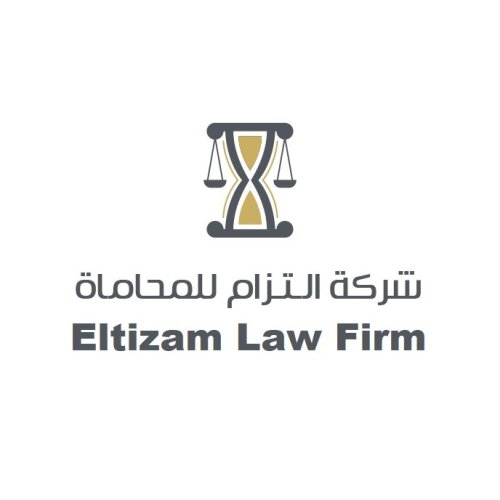
Best Media, Technology and Telecoms Lawyers in Saudi Arabia
Share your needs with us, get contacted by law firms.
Free. Takes 2 min.
Or refine your search by selecting a city:
List of the best lawyers in Saudi Arabia

About Media, Technology and Telecoms Law in Saudi Arabia
The fields of Media, Technology, and Telecommunications (often collectively referred to as MTT) have experienced significant growth and transformation in Saudi Arabia over recent years. This development is largely driven by the Saudi Vision 2030 initiative, which aims to diversify the economy, enhance technological infrastructure, and foster a vibrant digital culture. As the Kingdom embraces a rapidly evolving digital landscape, the regulatory environment is continually being updated to support innovation while safeguarding public interest and national security. As a result, the legal framework governing media, technology, and telecoms is comprehensive, covering everything from digital content management to data protection and cybersecurity.
Why You May Need a Lawyer
There are numerous situations where seeking legal advice in the field of Media, Technology, and Telecoms may be necessary:
- Launching a new technology or media company and needing to navigate regulatory compliance requirements.
- Dealing with intellectual property challenges, such as patent infringement or copyright disputes.
- Negotiating and drafting contracts with service providers or partners in the telecom or tech industry.
- Ensuring adherence to cybersecurity laws and data protection regulations.
- Handling disputes related to digital content or broadcasting rights.
- Addressing concerns related to digital marketing and the use of personal data.
Local Laws Overview
Saudi Arabia has implemented several key laws and regulations that impact the MTT sectors:
- Communications and Information Technology Commission (CITC): The CITC regulates the telecom sector, overseeing licensing, competition, and consumer rights.
- Electronic Transactions Law: This law focuses on promoting secure electronic transactions and provides guidelines for signature authentication.
- Audio-Visual Media Law: Governs content dissemination across broadcast and online platforms, ensuring content compliance with cultural and religious standards.
- Anti-Cyber Crime Law: Aims to enhance cybersecurity by prohibiting offenses like hacking, fraud, and unauthorized access to private information.
- Personal Data Protection Law (PDPL): Establishes rules for collecting, processing, and storing personal data, giving individuals the right to control their data.
Frequently Asked Questions
What is required to start an online business in Saudi Arabia's tech industry?
Entrepreneurs must register their business with the Ministry of Commerce, obtain necessary licenses, and ensure compliance with relevant ICT regulations by the CITC.
How does Saudi Arabia protect intellectual property in the tech sector?
Intellectual property rights are protected under several laws, including the Copyright Law, the Patents Law, and the Trademark Law. These provide the framework for preventing infringement and securing rights.
What are the penalties for violating cybersecurity regulations?
The Anti-Cyber Crime Law stipulates penalties for violations, including fines and imprisonment, depending on the severity and nature of the cybercrime.
How are digital advertisements regulated?
Advertisements are subject to the General Commission for Audiovisual Media's (GCAM) guidelines, ensuring they adhere to cultural norms and truthfulness requirements.
Are there specific regulations for social media platforms?
Yes, digital platforms must comply with local content regulations and data protection laws. Authorities monitor content to ensure it aligns with societal and religious values.
What steps should a company take for data protection compliance?
Companies should develop a data protection policy, implement secure data handling practices, appoint a data protection officer, and ensure they respect the rights of data subjects.
Can foreign companies operate telecom services in Saudi Arabia?
Foreign telecom companies can enter the market but must obtain licenses from the CITC and comply with Saudi investment regulations.
How does Saudi Arabia address digital divide issues?
The government invests in infrastructure projects to enhance internet access across the Kingdom, aiming for widespread digital inclusivity.
What disputes are most common in media and telecom sectors?
Common disputes include licensing disagreements, breach of contract issues, content distribution rights, and competition-related conflicts.
Can content be banned or censored by the government?
Yes, content not aligned with legal, religious, or cultural standards may be censored or banned to protect public order and morals.
Additional Resources
- Communications and Information Technology Commission (CITC): The regulatory authority for the telecom sector.
- General Authority for Audiovisual Media (GCAM): Oversees media content across various platforms.
- Saudi Data and AI Authority (SDAIA): Provides guidance on data protection and AI regulations.
- Saudi Intellectual Property Authority (SAIP): Manages intellectual property rights enforcement.
- Ministry of Communications and Information Technology (MCIT): Key governmental body in driving tech advancements.
Next Steps
If you need legal assistance in the Media, Technology, and Telecom sectors, consider the following steps:
- Identify the specific area of concern within MTT in which you require legal advice.
- Research and list law firms or legal practitioners specializing in MTT within Saudi Arabia.
- Prepare all relevant documents and background information related to your case or query.
- Schedule consultations to discuss your needs, potential strategies, and costs involved.
- Choose a lawyer who demonstrates expertise and understanding of the local regulatory environment pertinent to your case.
Lawzana helps you find the best lawyers and law firms in Saudi Arabia through a curated and pre-screened list of qualified legal professionals. Our platform offers rankings and detailed profiles of attorneys and law firms, allowing you to compare based on practice areas, including Media, Technology and Telecoms, experience, and client feedback.
Each profile includes a description of the firm's areas of practice, client reviews, team members and partners, year of establishment, spoken languages, office locations, contact information, social media presence, and any published articles or resources. Most firms on our platform speak English and are experienced in both local and international legal matters.
Get a quote from top-rated law firms in Saudi Arabia — quickly, securely, and without unnecessary hassle.
Disclaimer:
The information provided on this page is for general informational purposes only and does not constitute legal advice. While we strive to ensure the accuracy and relevance of the content, legal information may change over time, and interpretations of the law can vary. You should always consult with a qualified legal professional for advice specific to your situation.
We disclaim all liability for actions taken or not taken based on the content of this page. If you believe any information is incorrect or outdated, please contact us, and we will review and update it where appropriate.
Browse media, technology and telecoms law firms by service in Saudi Arabia
Saudi Arabia Attorneys in related practice areas.
Browse media, technology and telecoms law firms by city in Saudi Arabia
Refine your search by selecting a city.
















